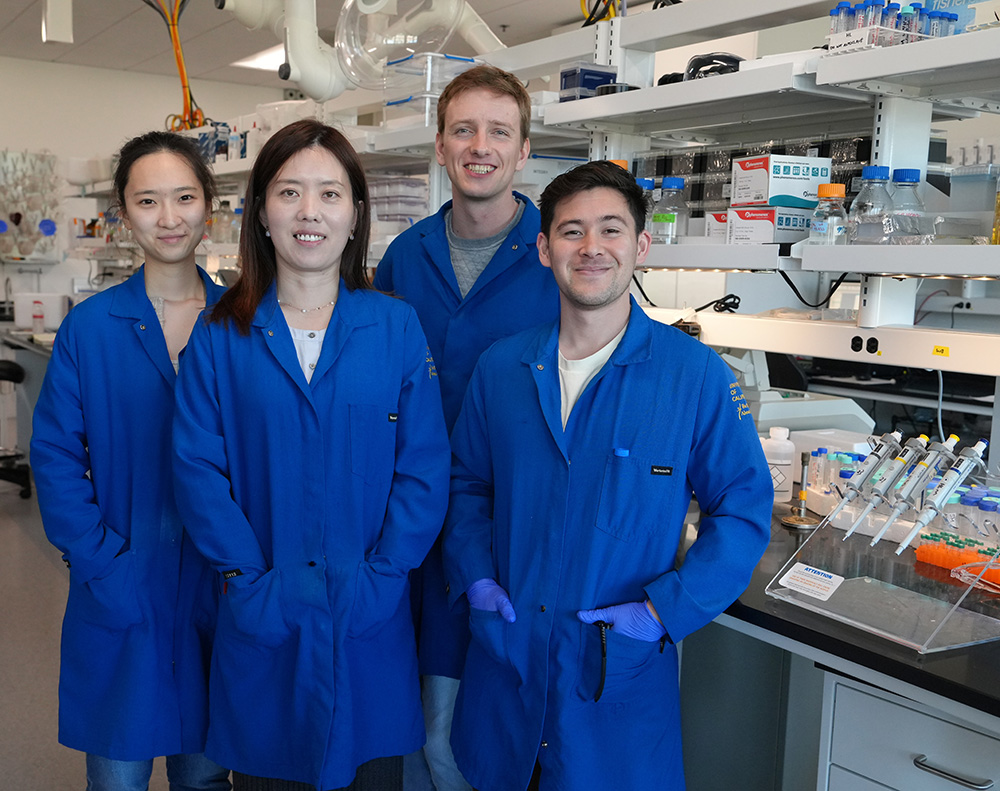Making Drugs, Plastics and Pesticides Greener

Oct.1, 2024 - Han Li wants to make the chiral chemical industry greener and more efficient. That’s a big order for the massive $72 billion industry that makes pesticides, cosmetics, plastics, pharmaceuticals and much more. “Currently, industry is producing chiral chemicals in a manner that’s very wasteful and harsh on the environment,” Li said.
Her lab wants to offer a solution. Li, an associate professor of chemical and biomolecular engineering at UC Irvine, believes that biofactories are the answer. Her research, recently published in Nature and Nature Chemical Biology, is producing technology for biological production that would be much more efficient, low cost and environmental than chemical processes.
“Nature uses two redox cofactors to run chemical reactions in different directions,” Li said. “As engineers, we want to learn from nature to implement this strategy in a test tube, and to go beyond nature.” So she created more redox cofactors. Her lab has developed a way to control and enable these two opposing driving forces to complete their reactions without interfering with each other in the chiral product 2,3-butanediol, a polymer building block used in bio-based plastics.
Current industrial processes produce two similar chiral isomers that are very difficult to separate. An inordinate amount of time and money are invested to separate them, and in the end, only one isomer is used while the other is thrown away. These chemical factories produce a massive amount of industrial pollution leading to more than 1,500 chiral pollutants present in the environment.
“This is a platform technology that allows making these valuable chiral chemicals that are in huge demand in a more sustainable, economical and less wasteful way,” Li said. Once their technology is perfected, companies who produce drugs, pesticides, plastics and cosmetics could adopt it to make chiral chemicals, saving them tremendous resources by switching to this biomanufacturing process that is friendly to the environment.
Li’s Laboratory of Metabolic Engineering and Synthetic Biology is working on ways to produce biofuels, foods, cosmetics, and commodities using CO2-derived feedstock, which helps neutralize CO2 emissions.
Her lab’s research in sustainable biomanufacturing has been recognized by the National Science Foundation CAREER Award, the NIH New Innovator Award, Sloan Research Fellowship, Finalist of Blavatnik Awards for Young Scientists, and the U.S. Department of Energy’s Advanced Research Projects Agency.
- Natalie Tso
